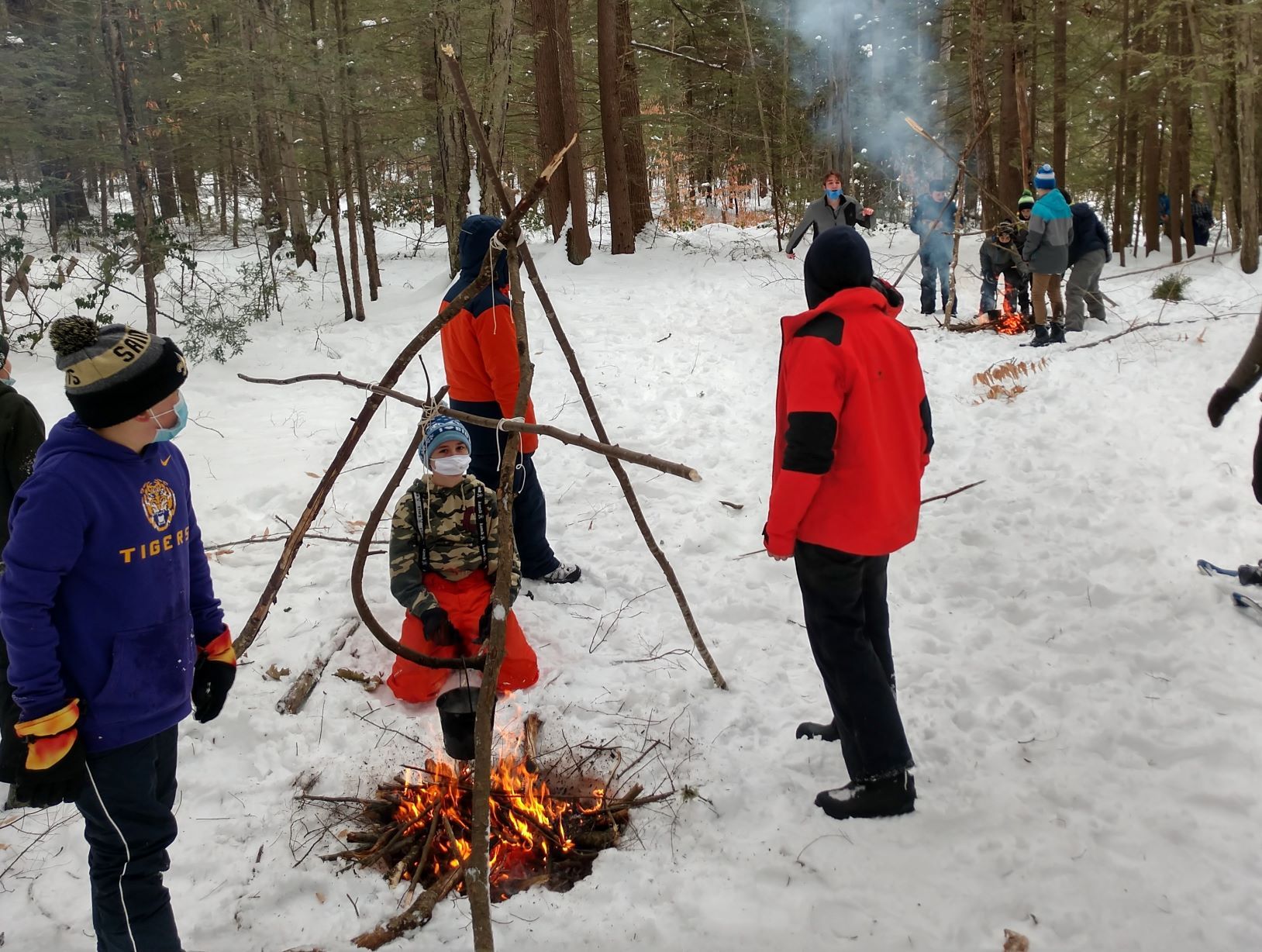We live in a world that likes to chop things up into bite-size pieces and analyze each part in order to understand the bigger picture at play. This method of engaging with learning material works well for some but has one downfall that I find pretty severe.
It’s easy to get bogged down in individual skills. Ignition methods for fire are a great example. If you go on youtube and search “starting a fire” you’ll end up with a million results and just as many strategies for ignition. It’s a fine thing to know seven thousand different approaches to starting a fire, but what’s the endgame? The modern outdoor industry sometimes seems like it wants you to treat your experience like a video game. Leveling up certain skills, getting badges, and constantly focuses on how to “improve” what you’re doing. I think it’s helpful to some extent to think about getting more competent at certain individual skills, but I also think it’s important to take part in, or set up for yourself, exercises that combine a wide range of knowledge and skills to force some lateral thinking. We use an approach that we jokingly refer to as a “Skills ro-day-oh” (Rodeo, but said with a fancy accent). We set a goal for students to achieve but provide very little framework for the exercise. I’ll give you an example.
I’ve been working with a group of local middle-schoolers for the last few months, teaching outdoor living skills as their P.E. class for the winter. We’ve been covering a new topic twice a week, and they’ve come a long way. It didn’t seem that way to them. I saw a group start to understand how to enjoy winter, how to function as a group (often having the fire going at our teaching area within minutes of arriving, without any prompting from me), and built up a list of handcrafts and skills that they had some experience with. What they saw were the small individual struggles that came along with each new class.
Enter the “skills ro-day-oh”. For this exercise, we gave each group matches, a pot, and knives, then turned them loose with the only instruction being “Make wild tea”. Almost instantly each group problem solved each individual aspect of this seemingly simple task. They knew how to make a fire and how best to lay it. They quickly and effectively felled saplings with their knives in order to make a tripod to hang the pot from. They even went so far as to intentionally select a black birch sapling for their pot hanger in order to already have the twigs from it for their tea. It was really enjoyable to watch as an instructor.
My point here is mostly just to avoid getting too laser-focused on the individual minutiae of certain skills, and take time on occasion to look at the big picture. The skills we learn and practice are tools to help us live better in the bush, and if what you’re doing is working, that’s more important than if you know a thousand other ways to do it.








